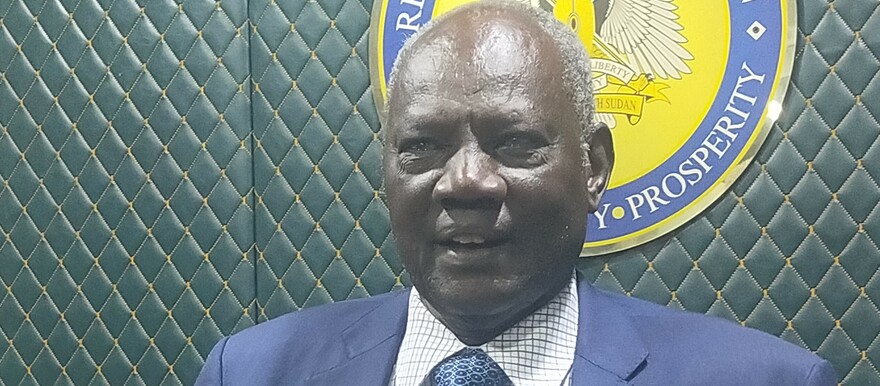South Sudan’s Minister of Information Michael Makuei said that the decision regarding the forthcoming elections will be made during an imminent meeting involving participating parties.
Speaking to journalists following a cabinet meeting in Juba on Friday, Makuei reiterated the government’s stance, emphasizing their commitment to holding elections in December 2024. He indicated that the Sudan People’s Liberation Movement in Opposition (SPLM-IO) has the freedom to choose not to participate.
Last week, the SPLM-IO reaffirmed its rejection of what it perceives as flawed elections, citing violations of the 2018 peace agreement. The party insists that elections should only occur once all conditions for conducting a peaceful, transparent, democratic, free, fair, and credible process are met.
In response, Makuei stated, “Our position is clear: the government of South Sudan intends to proceed with elections as outlined in the roadmap. However, any decision to abstain from elections will be discussed in the upcoming party meeting. Ultimately, it is the prerogative of each party to exercise their constitutional rights, and it is not our role to question their choices.”
South Sudan plunged into a devastating civil war soon after gaining independence in 2011, sparked by a political rift between President Salva Kiir and his then-deputy, Dr. Riek Machar. The conflict claimed approximately 400,000 lives, as reported by the UN.
In 2018, Kiir, Machar, and other political figures signed a peace agreement, effectively ending the war. As the transitional period draws to a close, the country is slated to hold a general election in December 2024.
Addressing the recent arrest of activist Dr. Peter Biar Ajak in the United States earlier this week, Makuei commented that Biar is an American citizen subject to American law. Makuei noted that Biar and his associates obtained American citizenship, making any offenses they commit the jurisdiction of American authorities. “We are familiar with Biar; he was once a rebel leader during the revolt that took place in the Blue House. However, the President pardoned him, allowing him to return to America,” Makuei explained.
Makuei continued, “Before reaching America, Biar travelled to Nairobi, where he began criticizing the South Sudanese government before proceeding to the United States. It appears he may have been gathering weapons, potentially for use in South Sudan, given his history as an activist. If peaceful activism has failed, he might have been contemplating resorting to armed conflict. Unfortunately, in America, he encountered the scrutiny of American security forces and was apprehended along with his companions.”
The Information minister confirmed the South Sudanese nationality of Biar and his colleagues but highlighted their current status as American citizens, stating that Biar has committed an offense within the United States. The minister emphasized that American law would address the situation accordingly. The government of South Sudan refrains from commenting further, asserting that, as an American citizen, Biar must face the legal consequences in the United States.
The minister explained, “As to whether these arms were destined for South Sudan or any other place, it is an offense committed in America by buying arms without a license and attempting to export them elsewhere. This is a crime within America.”
The minister underscored the additional complication that an arms embargo is in effect in South Sudan. Importing arms into the country is prohibited, constituting another offense, which, according to the minister, was unknowingly committed by the individuals involved.
Makuei stated, “Note that, in addition to that, the additional offense that has now joined them is that there is an arms embargo in South Sudan. So nobody is allowed to bring in arms into South Sudan, and that is another offense which they unknowingly committed.”
About President Salva Kiir’s recent visit to Rwanda in February, Makuei said the cabinet received a briefing from Minister for Presidential Affairs Bangasi Joseph Bakosoro. The briefing covered President Kiir’s visits to Ethiopia from February 15th to 18th, Rwanda on February 22nd to 23rd, and Burundi on February 23rd.
Makuei explained that the purpose of these visits was to address tensions existing between these countries. In his role as the president and chairman of the East African Community, President Kiir aimed to mitigate these tensions, he said.
Makuei added, “Through discussions with the heads of state of these countries, President Kiir successfully de-escalated tensions and exerted control over the situation. Additionally, he is expected to visit the Democratic Republic of the Congo (DRC) soon, as the DRC is also involved in these conflicts.”




